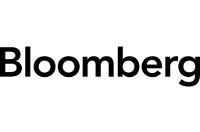Posted by Michael Wonder on 18 Feb 2017
The drug lobby is getting touchy about drug prices

17 February 2017 - In the mid-1990s, the American public turned against the tobacco industry. As documents emerged showing that tobacco executives had long known that cigarettes could kill even as they denied any link between smoking and cancer, the companies were buried under a blizzard of exposes, public opprobrium, and lawsuits.
The denouement was the 1998 Master Settlement Agreement, in which Big Tobacco agreed to pay 46 states billions of dollars annually, in perpetuity, while curtailing certain marketing practices. (The other four states cut their own deals with the tobacco companies.)
In the wake of the 2008 financial crisis, the American public turned against Wall Street. As people learned the degree to which Wall Street products — and Wall Street behaviour — had caused the crisis, they demanded that something be done. Wall Street executives were hauled before Congress and lawsuits were filed against banks and investment banks by the Securities and Exchange Commission and the Justice Department. The end result was a dramatic tightening of financial regulation in the form of the Dodd-Frank Act.

